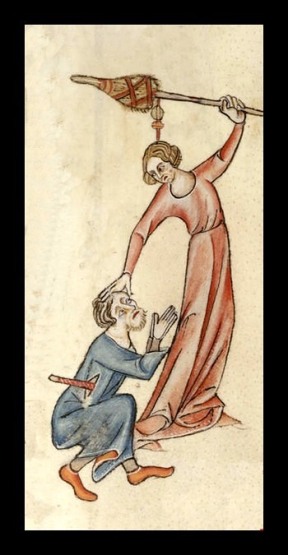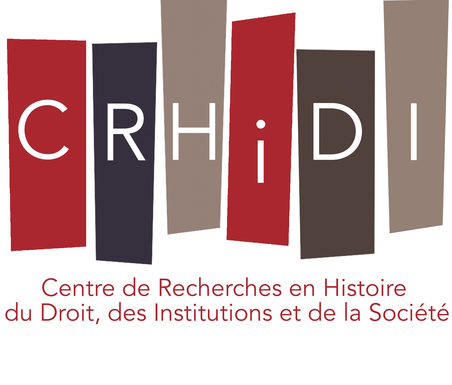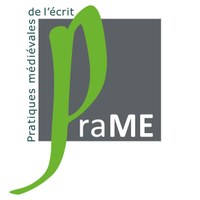The last decades have witnessed an increased interest in research on the relationship between women and violence in the Middle Ages, with new works both on female criminality and on women as victims of violence. The contributions of gender theory and feminist criminology have renewed the approached used in this type of research. Nevertheless, many facets of the complex relationship between women and violence in medieval times still await to be explored in depth. This conference aims to understand how far the roots of modern assumptions concerning women and violence may be found in the late medieval Mediterranean, a context of intense cultural elaboration and exchange which many scholars have indicated as the cradle of modern judicial culture. While dialogue across the Mediterranean was constant in the late Middle Ages, occasions for comparative discussion remain rare for modern-day scholars, to the detriment of a deeper understanding of the complexity of many issues. Thus, we encourage specialists of different areas across the Mediterranean (Western Europe, Byzantium, and the Islamic world) to contribute to the discussion. What were the main differences and similarities? How did these change through time? What were the causes for change? Were coexisting assumptions linking femininity and violence conflicting or collaborating?
The conference will take place over two days thanks to the generous contributions of The Oxford Research Centre in the Humanities, the Maison Française d’Oxford, and the UMR Orient- Mediterranée Monde Byzantin.
Keynote speakers
Professor Carol Lansing (UC Santa Barbara)
Professor Élisabeth Malamut (Université de Provence)
Conclusion by Professor Annick Peters-Custot (Université de Nantes)

Programme :
Day 1 – Friday 27th September
9:30-10:00 Registration
10:00-10:15 Opening remarks
10:15-11:15 First Keynote lecture – Gender expectations, rage, and women’s strategies of retribution in late medieval Italy – Carol Lansing, University of California Santa Barbara
11:15-11:30 Coffee Break
11:30-13:00 Session 1 – Gendered Crime
Chair: Sophie Marnette, Oxford
A silent violence. Veneficium as a gendered crime in Late Medieval Italy (Emilia Musumeci, Teramo)
« Under his Eye »: abortion and the gendering of crime in Byzantium (Stephanie Novasio, Birmingham)
Negotiating Violence and Consent: Sex Workers in Later Medieval France and Burgundy (Lucia Akard, Oxford)
13:00-14:00 Lunch
14:00-16: 00 Session 2 – Women and War
Chair: Vivien Prigent (CNRS – Paris 1)
« Both General and Lady »: The 1135 Defence of Gangra by its Amira (Maximilian Lau, Tokyo)
Representations of women’s violence in the epic: the old French Guillaume d’Orange cycle, the Byzantine Digenis Akritis and the Persian Book of Kings by Ferdowsi (Nina Soleymani Majd, Grenoble)
À l’épreuve des guerres seigneuriales. Des rôles féminins dans la trame de l’Histoire de Corse (Lucie Arrighi, Corsica)
Reflections on Women and Warfare in Communal Italy (XII-XIII centuries) (Alberto Luongo, Siena)
16:00-16:30 Coffee Break
16:30-18:00 Session 3 – Legal Theory
Chair: Hannah Skoda (Oxford)
The Criminality of Women in Late 15th-Century Ottoman Legal Theory (Fatma Gül Karagöz, Galatasaray)
Les droits des femmes dans le Kanun albanais (Kostanca Jorgji, Limoges)
Lascivious crimes and legitimate proofs: women and the juridical transformation of Norman and Staufen Sicily (Philippa Byrne, Oxford)
18:00-19:00 Drinks reception
19:30-21:30 Dinner for speakers and chairs
Day 2 – Saturday 28th September
9:15-10:15 Second keynote lecture – La parrèsia, violence specifique de la femme à Byzance – Élisabeth Malamut, Aix-Marseille
10:15-11:15 Coffee Break
10:30-12:30 Session 4 – Conflict and Peace-making
Chair: David Zakarian, Oxford
A queen, a sister and a mother. The role of Elizabeth of Aragon, Queen of Portugal, as a sponsor of Iberian peace (1300-1305) (Diana Martins, Lisbon)
« With her aid, direction, and fervor »: Women and the Politics of Lordship in Fourteenth-Century Tuscany (Joseph Figliulo- Rosswurm, University of California Santa Barbara)
« She Wanted to Trample the Land of Her Enemies »: Queen Isabel of Castile’s Chivalric Fondness for Violence (Samuel Classen, California Lutheran University)
A likely transfer of Mediterranean influence on performance of a Hungarian noblewoman. The case of Elizabeth Szilágyi (c.1410-1483) (Melina Rokai, Belgrade)
12:30-13:30 Lunch
13:30-15:00 Session 5 – Violence Against Women
Chair: Miri Rubin, Queen Mary’s University
Violence against Women in T‘ovma Mecopec‘i’s History of Tamerlane and his Descendants (15th c.) (David Zakarian, Oxford)
Medieval Verbal Harassment: Harassing Women and Women harassed in the Italian criminal court records (Bologna 1350- 1400) (Chloé Tardivel, Paris Diderot)
Legal regulation of sex crimes in medieval Serbia and its Mediterranean communes (Nina Kršljanin, Belgrade)
15:00-15:30 Coffee Break
15:30-17:00 Session 6 – Women at the Margins
Chair: Philip Booth, Oxford
Jewish women in the Crown of Aragon and intra-community violence – 14th century (Chloé Bonnet, Perpignan)
Aristocracy, Slavery, and Violence on Women in Renaissance Central Italy (Loek Luiten, Oxford)
« Weak Little Women »: The Presence of Gendered Strategies in Early Fourteenth-Century Inquisitorial Courts (Delfi I. Nieto Isabel, Barcelona)
17:00-17:30 Conclusion – Annick Peters-Custot, Nantes
Informations pratiques :
Maison Française d’Oxford
2-10 Norham Road
Oxford, Oxfordshire OX2 6SE Royaume-Uni
27-28 September
This event is free. To secure your place, please register here
Facebook : ici
Source : Maison Française d’Oxford







Vous devez être connecté pour poster un commentaire.